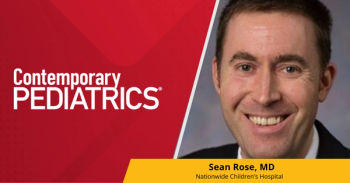
CMS proposes Medicaid program change
A good part of the healthcare finance community in Washington is waiting for the reworking of Medicaid and Children’s Health Insurance Program (CHIP) managed care that may be published soon.
A good part of the healthcare finance community in Washington is waiting for the reworking of Medicaid and Children’s Health Insurance Program (CHIP) managed care that may be published soon. The new federal regulations could have a wide impact on practice and financing of pediatrics.
In May 2015, the Centers for Medicare and Medicaid Services (CMS) published 200 pages of proposed rules that experts say are the first major remake for Medicaid managed care in 14 years. The agency says that among other things the rules would strengthen measuring and managing of quality of care and coordination; strengthen actuarial soundness and other payment regulations; promote the effective use of data; and strengthen provider networks.
The American Academy of Pediatrics (AAP) says that more than one-third of children are enrolled in Medicaid or CHIP, and the vast majority of those have access at least partially under managed care.
The numbers of adults and children under Medicaid managed care increased from 12.6 million (41% of all Medicaid beneficiaries) in 1998 to 39 million (58% of all Medicaid beneficiaries) in 2011. It’s estimated that this year 75% of Medicaid beneficiaries will be under managed care.
As a
A key point the AAP has requested out of this process is attention to equity in reimbursement rates in the wake of a 2015 US Supreme Court ruling (
The AAP objects to provisions in the proposed regulation that would align the rules governing Medicaid managed care with those of other major sources of coverage, including Medicare Advantage plans. It points to a calculation by the Children’s Hospital Association that application of Medicare Advantage rules “would limit access to such institutions to close to half the pediatric hospitals.”
That’s particularly important, the AAP argues, in light of the fact that pediatricians often struggle to find resources to care for “children and youth with special healthcare needs.”
The CMS proposed rules also have extensive provisions on beneficiary support; enrollment and disenrollment; network adequacy standards and access to care; managed long-term services and supports; appeals; capitation rates; quality of care; monitoring by the state; and program integrity. They would mandate, for instance, that a state that contracts with a managed care organization (MCO), PIHP, or PAHP must develop and enforce network adequacy standards that include time and distance rules for a number of different types of providers including adult and pediatric primary care, behavioral health, adult and pediatric specialists, and pediatric dental.
In its comments, the AAP generally applauded the adequacy standard, but said, among other issues, that MCOs’ prior authorization processes are often lengthy and the MCOs sometimes list providers on their panels who actually will not serve enrollees. The AAP also called for built-in monitoring of the impact of adequacy rules.
The proposed rules, under “Medicaid and Children’s Health Insurance Program (CHIP) Programs,” were published in the Federal Register on June 1, 2015, and are available at the
Ms Foxhall is a freelance writer in the Washington, DC, area. She has nothing to disclose in regard to affiliations with or financial interests in any organizations that might have an interest in any part of this article.
Newsletter
Access practical, evidence-based guidance to support better care for our youngest patients. Join our email list for the latest clinical updates.






